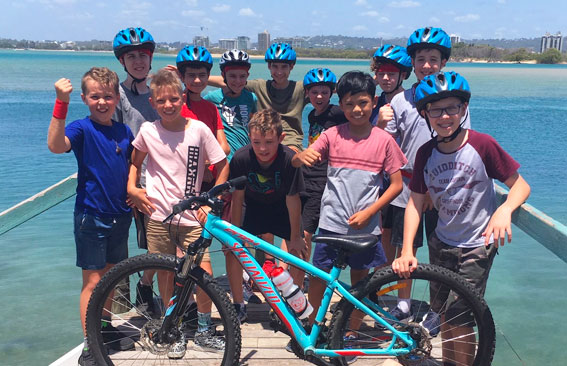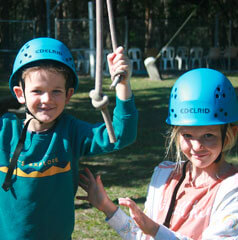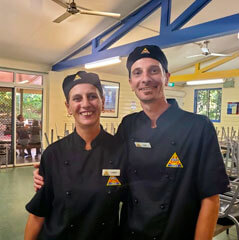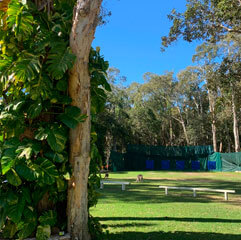Sunshine Coast and Magnetic Island Camp
Nunc dignissim risus id metus.
- 20 Apr 2022
- Admin

Camp is part of the school curriculum. Some schools say going to camp is compulsory, but in reality, parents have the last word on deciding whether or not their child will attend camp.
School camp is a fantastic opportunity for children to develop new skills, friendships and interests. However, for many kids (and their parents!) just the thought of sleeping away from home can provoke high anxiety.
Some of the common worries about camp include:
- Not being able to sleep properly
- Not liking the food camp will offer
- Who they will be sharing a cabin with
- Not enjoying the activities camp will offer
- Feeling homesick
- Although these are understandable concerns, it is important to help kids feel more positive about camp and to overcome the fear of not enjoying camp.
The benefits of school camp are numerous, here are my top five:
1. Development of social skills
School camp is a great opportunity to develop a range of social skills. Most activities at camp involve team work, which is great to strengthen established friendships and also to develop new friendships by connecting with children they don’t regularly talk with at school.
Through bonding activities, children develop supportive relationships not only with different children, but also with their teachers. At camp, children have the opportunity to learn about acceptance, caring and understanding.
2. Development of independence skills
For many children school camp is their first time away from family and home for a few nights. Parents are not there to remind their kids to eat their vegetables, brush their teeth, or to have a shower.
Therefore, this is a great opportunity for kids to grow up by learning how to take care of themselves and to do things on their own. Most kids do rise to the challenge and learn to rely on themselves when they spend time away home.
3. Development of decision-making skills
Should I go with my friends or should I do the activity I really want to do? Should I have the third slice of pizza? Should I stay up or go to bed? Supervising teachers are not able to hover over each child all the time, so at camp, children are responsible for making more of their own choices.
4. Increased environmental awareness
During camp, children are exposed to authentic nature-based experiences. Hands-on activities in the outdoors stimulate all senses and facilitate learning. Children become more aware of the environment, develop outdoor skills and appreciation for nature.
5. Learning new skills
At school camp, children will be exposed to a range of activities that they may not have tried before. When away from their parents, children are often more adventurous and willing to try new things.
OK great… BUT what if your child is feeling anxious about camp?
Here are five tips to help your child feel more confident about going to camp:
1. Preparation is the key to feeling less anxious. Talk with your child about their worries and fears. Talk about your own experiences at camp and how you overcame your own challenges.
Some other ways to help them to look forward to it include:
Discuss the activities they will be doing. Which ones will be challenging? Which ones will be fun?
Practice sleeping away from home by having sleepovers at a close friend or family member’s home.
Visit the camp’s website and take a look at pictures/videos of where they are going. Together, you can even create a special “story book” that they can look at on the days before camp.
Contact the camp and ask if you can organise a visit with your child prior to their camp date. This will help your child to familiarise with the environment and feel less anxious about the unknown.
2. Pack together and make it fun. Give your child the responsibility of checking that they have all the required equipment and take them on a special shopping trip to buy what they are missing. When packing, give your child a special memento to take with them that will help them feel safe. It can be a special soft toy or picture that they can keep in their sleeping bag.
3. Give your child a special journal to take with them on camp. You can write encouraging messages that they can read while they are away. They can also write or draw things they will like to share with the family once they are back home.
4. Talk to your child’s teacher and share the concerns you have. The teacher will appreciate this extra information and most likely will keep a closer eye on your child.
5. Consider counselling. An experienced child psychologist can help your child to identify the source of their anxiety, learn how to overcome and replace unhelpful thoughts and how to use other practical strategies to minimise their anxiety.
If you think you have done all you can to prepare your child for camp, but they are still feeling anxious, reconsider if it’s a good idea for them to go to camp.
Throughout their school years most children go to several school camps, so hopefully they will have another opportunity the following year.
Just don’t give up, keep encouraging them and helping them to get ready for what could be a highlight of their childhood!










Magnetic Island, 37 Birt St, Picnic Bay QLD 4819
Call Us 1300 122 677
© 2024 Apex Queensland Youth Camps Ltd. All Rights Reserved.
Website Designed and Developed by Balar Media Group.
